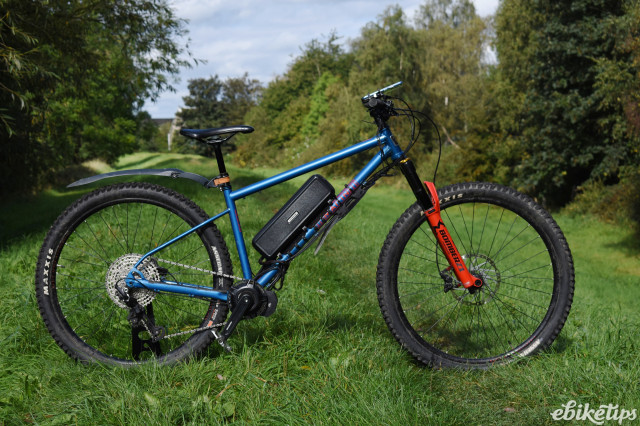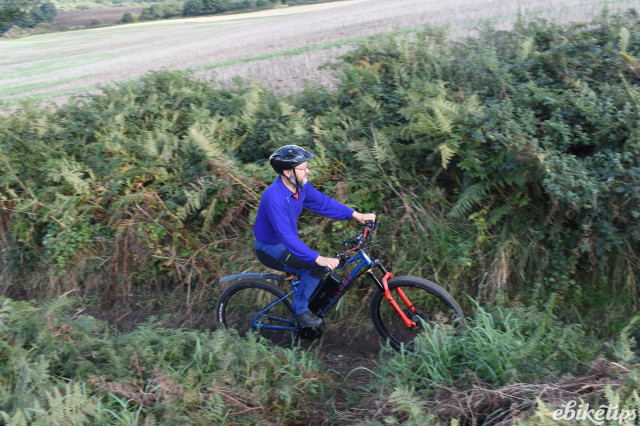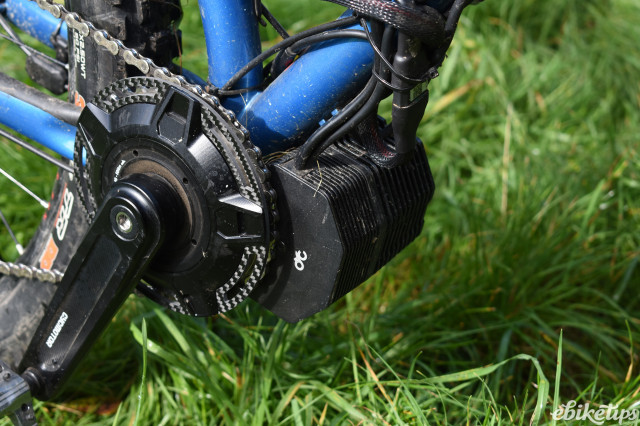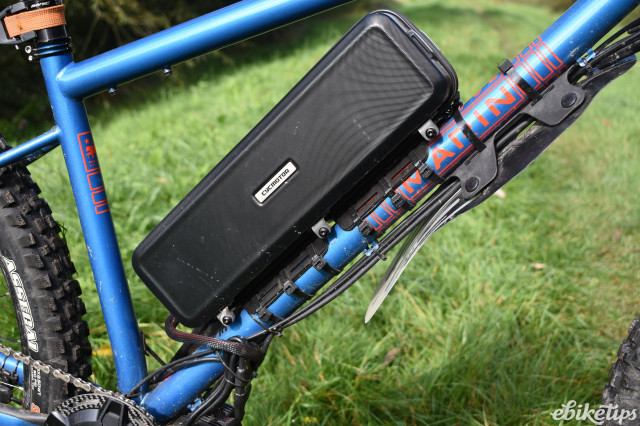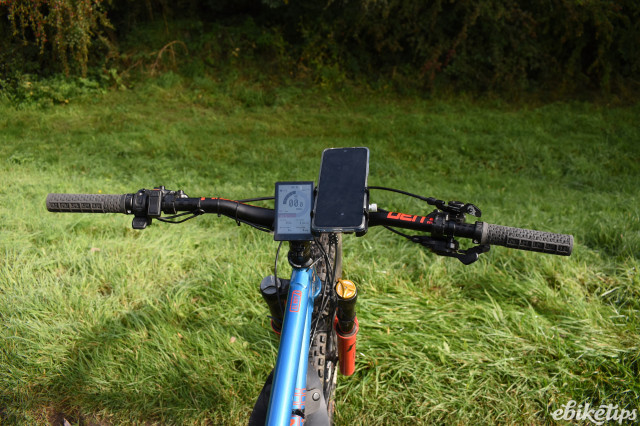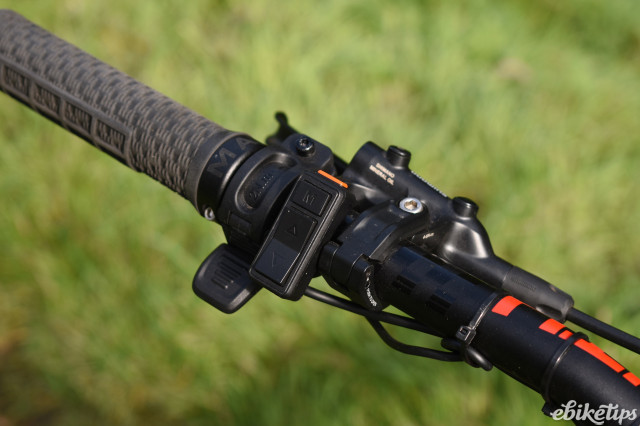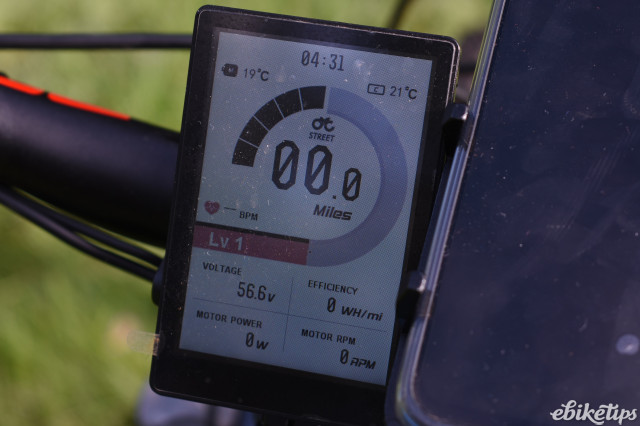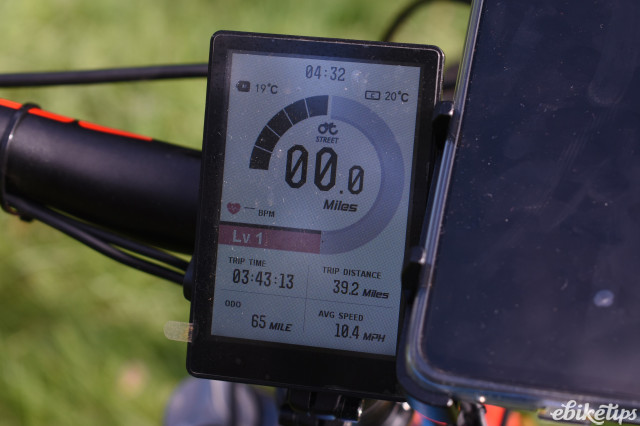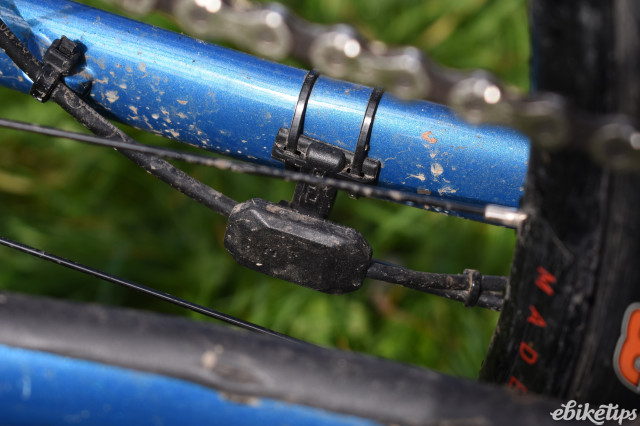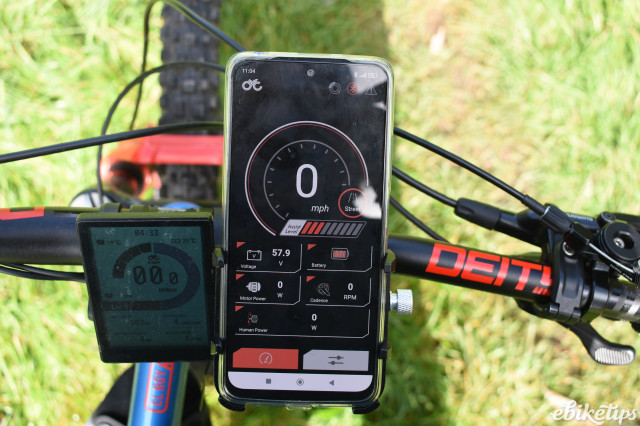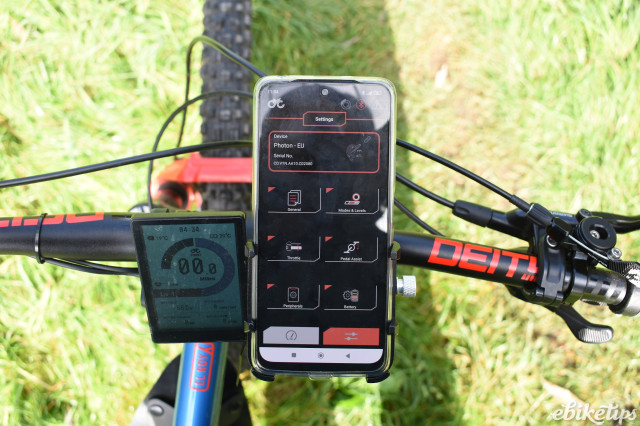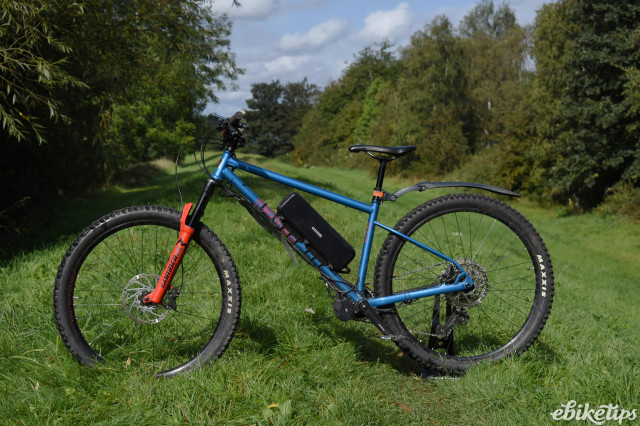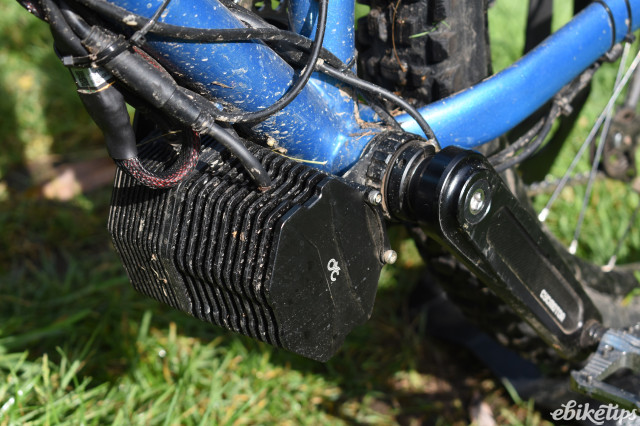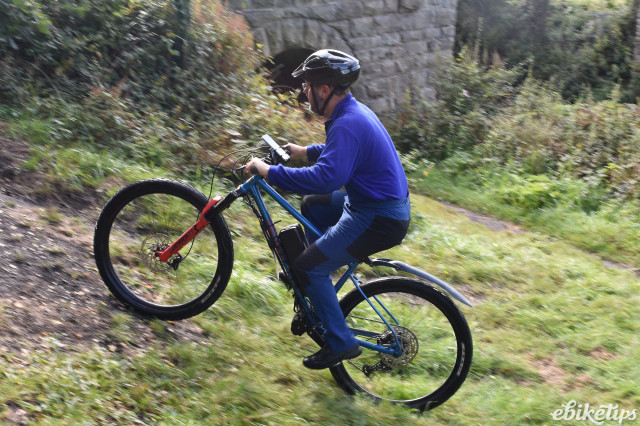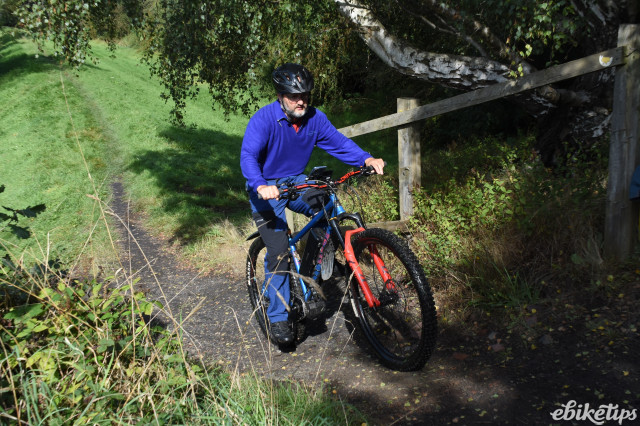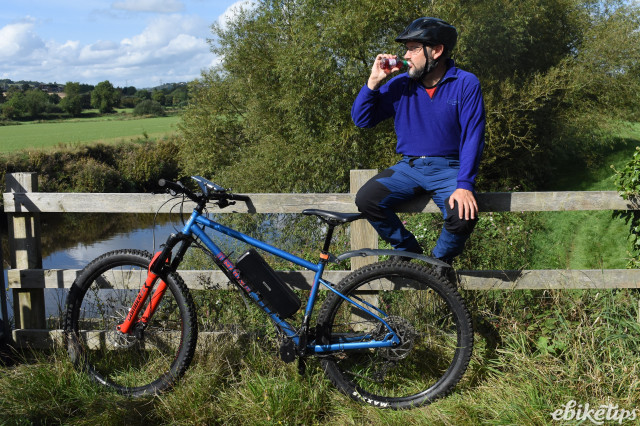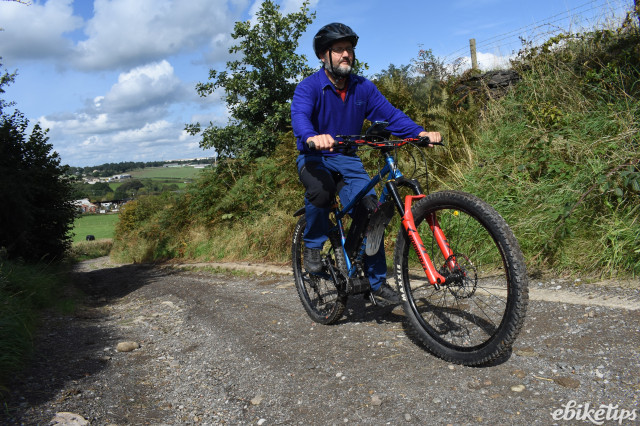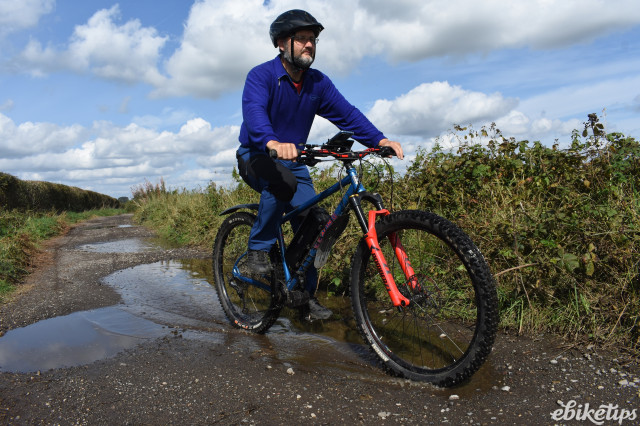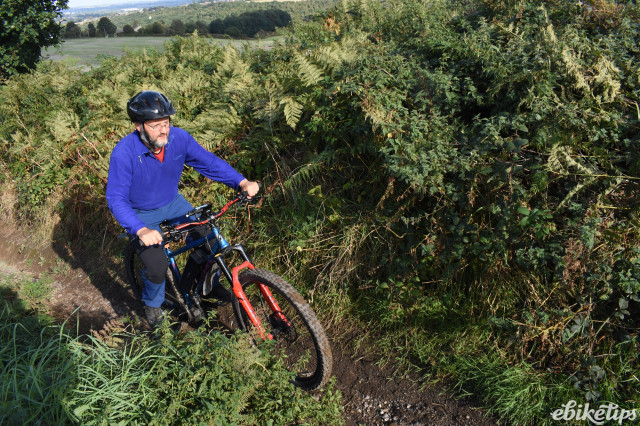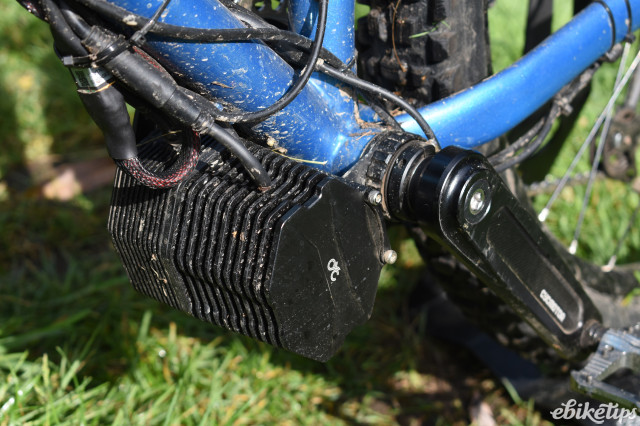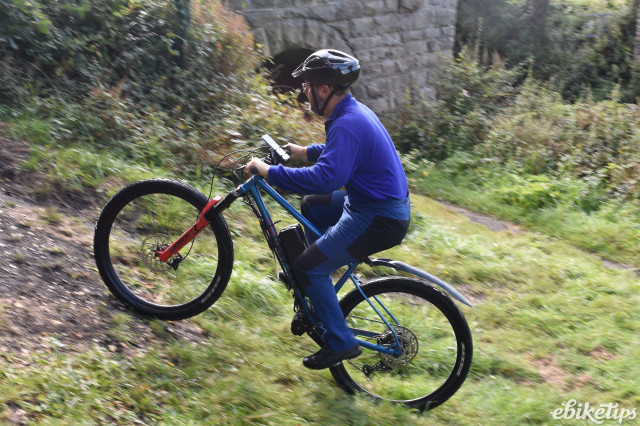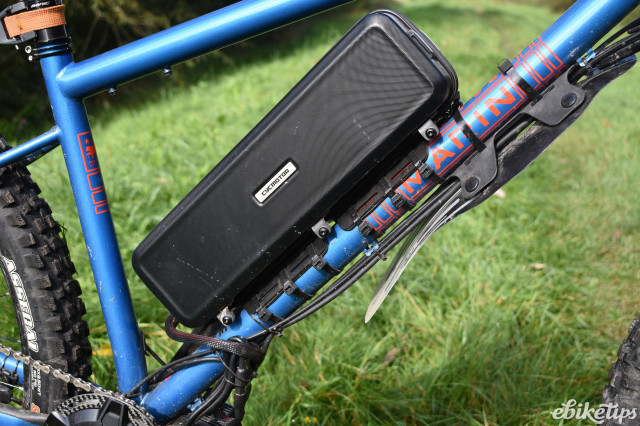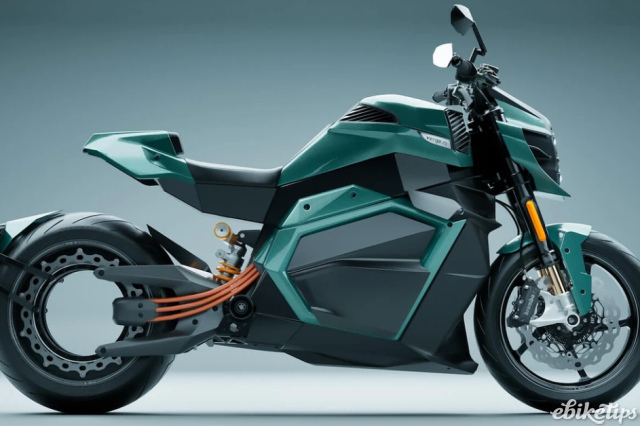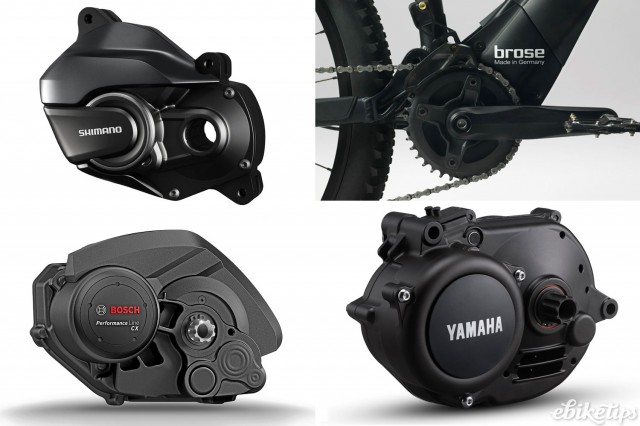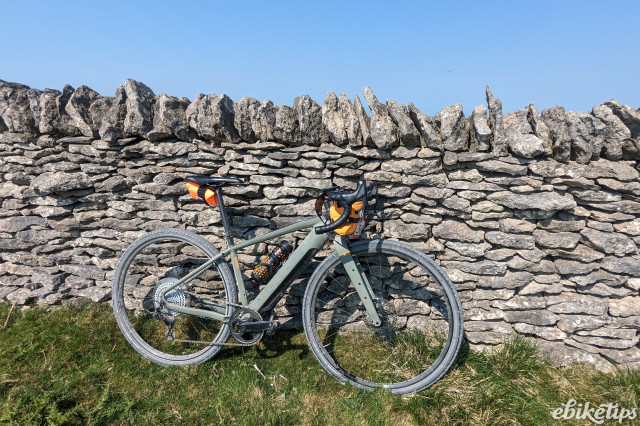CYC Photon e-bike conversion kit
Overview
- High quality and powerful pedelec assist
- Lightweight motor
- Sophisticated and useful app
- Pricey against the competition
- Battery mounting could be more secure
We covered the international launch of the CYC Photon kit at the start of the year and were impressed with its headline specs. Since then we've had our hands on a UK legal version and can report that it brings a new level of technical sophistication to the e-bike conversion kit market.
Writing at the time of that linitial launch, we said: "The Photon claims to weigh around 3.3kg (motor only), which is considerably lighter than competitor mid-drive conversion kits from the likes of Bafang and Tongsin. The Photon also claims an astounding 110Nm of torque - higher than even the top performing Bosch mid-drives (the Bosch Performance Line CX claims 85Nm torque from a motor weight of 2.9kg). The many cooling fins on the outside of the Photon certainly hint at large amounts of power being generated, with heat needing to be dissipated accordingly."
Initial iterations of the Photon concentrated on the US market where 750W is the standard legal power limit. Now comes this UK compliant version with a 250W rating and with the throttle option disabled. Does the real world riding live up to the hype?
CYC Photon - why a mid-drive kit?
The CYC Photon is a mid-drive kit in a world where the vast majority of e-bike kits are hub motors and often bought simply as a cheap route into e-biking. In contrast, the Photon looks to bring the inherent performance benefits of a mid drive (greater climbing power over a wide range of speeds) combined with high quality, lightweight manufacture.
The most immediate competitors that spring to mind are the Bafang BBSO1 and Tongsin and the Photon has several advantages over both these:
- The motor itself is several hundred grams lighter (depending on exactly which Bafang or Tongsin you compare it to).
- Because of the small gear reduction used by the Photon, it can accommodate a 34-tooth chainring and keep a good chainline. Such a small chainring is ideal for bikes that need low, easy-to-pedal gearing, such as mountain bikes with '1x' gearing and cargo bikes. By comparison, most websites sell the Bafang with chainring options starting at 44 teeth (there are some aftermarket 40-tooth chainrings available). The Photon actually has a good spread of chainring options at 34T, 38T 42T and 50T and the only real weakness of the motor design is that it will only take a single chainring so the gearing on multi-chainring bikes could not be replicated.
- The Photon will fit a wide range of bottom bracket widths making it suitable for many more bike designs (eg some fat bike designs) whereas competitor mid-drives only fit more conventional designs.
- The Photon has torque sensing, which is known for smoother and more efficient power delivery. (The Bafang has only cadence sensing, while the Tongsin does have torque sensing.)
- The Photon features splined spindles for longer wear compared to the square tapered crank spindles on cheaper models.
CYC make their own B-series batteries too - a good sign if you are looking for a reliable and safe kit. Many lower priced kits (especially super fast and illegally powerful ones) are sold as a motor only and leave the buyer to source their own battery and charger.
My test bike came with the next to the largest 624Wh option and the £1,748 price above reflects this large capacity battery with Samsung 21700 cells, which are a very high quality choice. The larger 21700 sized battery cells are still a relatively unusual choice on e-bikes where the smaller 18650 cells are more common.
I would have liked to have seen a harder casing to the battery itself, as it's made of tough but slightly flexible plastic and is zipped down the middle (the zip has a rubberised waterproof covering). CYC assure us that it can be used in very heavy rain etc and they also note that the battery cells themselves are 'potted' - that is totally enclosed with a compound (usually a resin) to provide maximum shock and vibration resistance as well as to create a seal against moisture, solvents, and corrosive agents. Potting compounds are also used to aid electrical insulation, flame retardancy and heat dissipation. If the battery cell welds and all other aspects of battery construction are high quality, potted batteries can be very effective and provide good protection in tough conditions.
In short, if you have decided that a mid-drive kit is for you because of the high performance benefits over a hub motor, then the Photon's powerful yet lightweight spec puts it right up there near the top of the list.
CYC Photon ridden
Electric Bike Conversions of Guildford kitted out a steel hardtail MTB - a Marin El Roy - with a CYC Photon kit. The overall weight of the bike with kit was 23.8kg. With the bike itself weighing around 15.6kg, that gives a total kit weight of 8.2kg.
Much of that is accounted for by the battery pack. The quoted weight is 4.3kg, although I didn't remove it and weigh it. Assuming that's right, that leaves 3.9kg as the weight of the motor, wiring, display and the rear wheel magnet speed sensor. For such a powerful and high tech mid-drive, that's impressively light. If you opt for the smaller 360Wh battery, with a quoted weight of 2.2kg, that results in a total kit weight of 6.5kg - again a comparatively low weight when measured against other mid-drive systems with similar high performance characteristics.
I was hugely impressed by the torque sensing which felt almost as natural as a Bosch motor. I went on a long ride with a fellow rider using a Bosch Performance Line powered e-bike with low gearing, and the Photon - in terms of hill climbing performance at least - was pretty much equal to it and only noticeably a little noisier in the top power level (three out of three), and even then not by a huge amount.
In other words, it's a great hill climber.
The torque sensing, in particular, delivered. Its smooth and responsive power gave a really natural-feeling ride and it never failed to get up any gradient however steep or tricky to negotiate.
I can't say it had more torque than a Bosch Performance Line, as there wasn't any hill that either bike failed, but the Photon is at least its equal and would probably match the even more torquey Performance Line CX too.
Estimated range of the 624Wh battery over pretty testing Pennine terrain was around 50 miles, which is certainly respectably efficient.
I don't normally have much to say about apps as I find they don't add much to the riding experience, but the CYC Photon app is the exception that proves the rule. The Bluetooth connection to the bike was almost immediate and never missed a beat and best of all there are myriad settings to finesse not only the level of power delivery in the three different levels but also how that power is delivered. It's also quick and easy to set the power delivery you want on the fly.
Having said all that, you don't need to use the app if you don't want, as the high quality display that comes with the kit shows the basics - such as speed and battery capacity level - clearly and accurately .
If you are technically minded though, the app is one of the best out there, letting you monitor such aspects as motor power versus your own contribution, and it even has two temperature readings for the motor and controller so you can monitor that things are working as they should.
Whilst there doesn't appear to be a heart rate monitor supplied by CYC, there is a heart rate field in the app, suggesting one may become available in the future. This is the first summer that the Photon has been available and they have been concentrating on ramping up production, so more connectable accessories may well be on their 'to do' list.
A final note on the app: it has fields for an extra powerful 'Race' mode and throttle activation, but these are effectively disabled and cannot be used with this 250W UK compliant version of the software.
The only real negative I found with the Photon kit is that the battery has to stay on the bike, not having a quick release system for removal - at least that was the case for this particular setup, which effectively cable ties the battery to the frame. This worked okay in practice, but I felt a far better option is to use your bike's water bottle mounts (which the El Roy lacked). These act as far stronger mounting points for the Photon mounting plate. However, even then the battery bolts to the plate and there is no quck release removal method.
With the setup on the El Roy, it was necessary to disconnect the battery-to-motor cable to plug the charger into the battery. This is good from a water resistance point of view perhaps (charging ports on batteries are a potential source of water ingress), but having the charging connector located low down and under the bike frame means it's a fiddly procedure to recharge.
CYC pricing, options and value
Fitting is probably best described as a moderately difficult job and really boils down to whether you are comfortable replacing the bottom bracket assembly on your donor bike. If not, you can have the kit installed at Electric Bike Conversions at a cost of £199.
As mentioned, there are few accessories available but the potential to connect more - physically or wirelessly - in future and of course software can always be updated to incorporate the latest features.
Electric Bike Conversions do offer brake cut-off cables for £18 (using the same connectors as the Bafang system apparently), but my personal feeling was that the control offered by the responsive torque sensing of the pedelec power means these aren't really necessary.
Whilst the CYC Photon kit can theoretically be programmed to work with batteries from 36V to 52V, the B-series batteries do look far and away the best option. One potential safety weak point with conversion kits is inadvertently getting a battery that is not compatible with a given motor. This means that matching the motor to a third party battery requires expert advice, but there is no real need for this when the Photon batteries look a solid option and are specifically designed for compatibility.
Price-wise, the CYC Photon kit is certainly at the top end of the conversion kit spectrum. However, it has been designed and made by knowledgeable engineers and brings Bosch-like, relatively lightweight performance benefits and a level of technical sophistication that is lacking on cheaper competitor mid-drive kits.
Okay, you may be able to pick up a cheap mid-drive e-bike off the shelf for the same or not much more money, but the Photon brings you the versatility to fit it to almost any design of bike you want. To mention just a few examples, it brings relatively affordable lightweight e-MTBs within your grasp (there are plenty of high spec, lightweight MTBs on eBay, for example, that are a fraction of the cost of new models), but it could equally be deployed to electrify fat bikes, recumbents or trikes.
The CYC Photon is certainly one of the most exciting and sophisticated kits I have tried over a fairly long testing career and it has cleverly carved its own niche in the ever expanding conversion kit market.
1 comments
1700 notes for something that looks like a dogs breakfast when I can get a second hand or even new mid motor for not much more.
